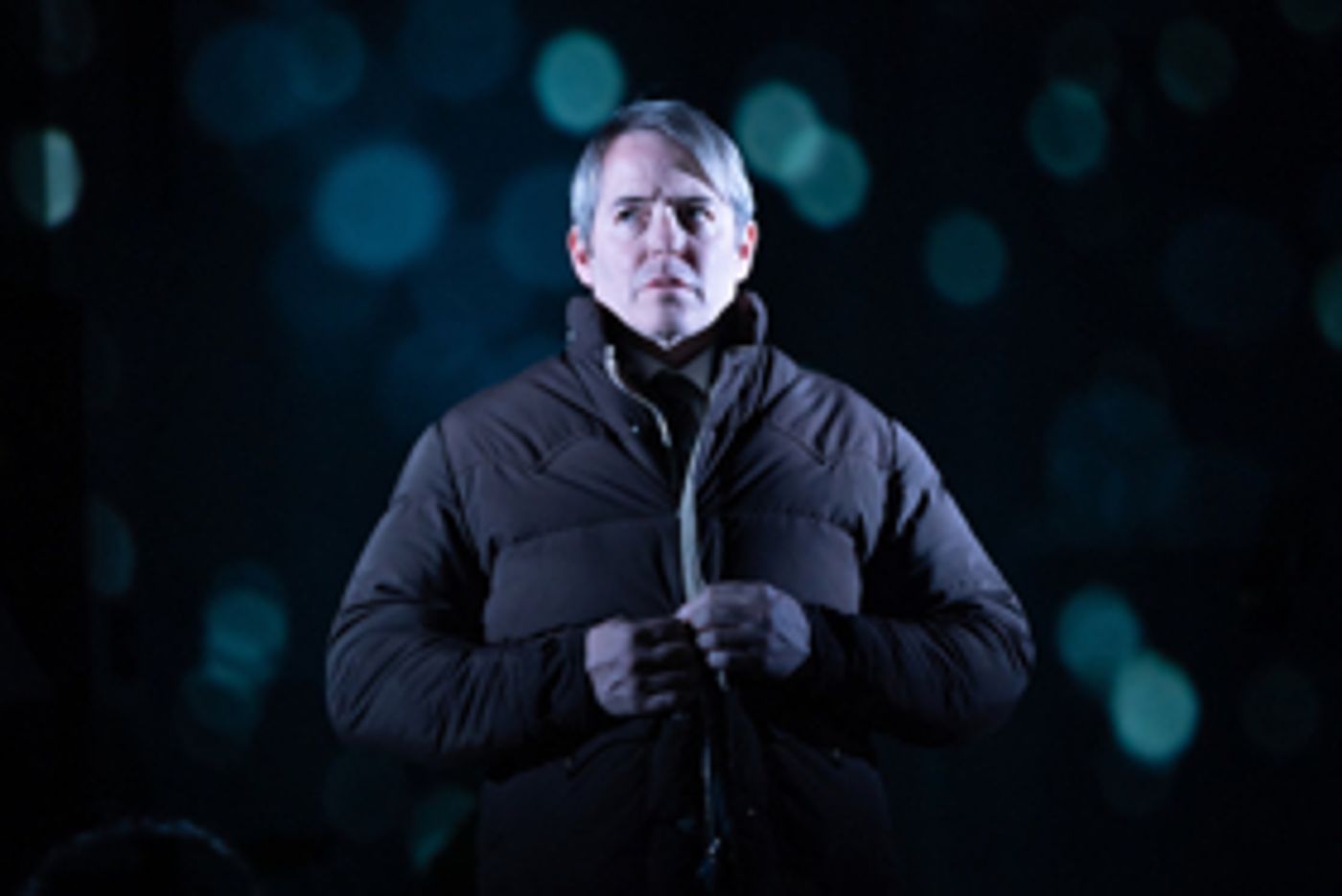Review: THE STARRY MESSENGER, Wyndham's Theatre
![]() A decade after originating the lead role Off Broadway, Matthew Broderick returns to Kenneth Lonergan's play to make his West End debut. His devotion to the material is certainly understandable, as the part is tailor-made for his signature brand of self-effacing deadpan - a placid mask covering existential angst.
A decade after originating the lead role Off Broadway, Matthew Broderick returns to Kenneth Lonergan's play to make his West End debut. His devotion to the material is certainly understandable, as the part is tailor-made for his signature brand of self-effacing deadpan - a placid mask covering existential angst.
 That protagonist is mild-mannered astronomy teacher Mark, inspired by a real instructor who taught a course at New York's Hayden Planetarium attended by Broderick and childhood friend Lonergan. In life, as in the play, the planetarium was marked for demolition, which here adds to Mark's sense of inconsequence in the vast universe.
That protagonist is mild-mannered astronomy teacher Mark, inspired by a real instructor who taught a course at New York's Hayden Planetarium attended by Broderick and childhood friend Lonergan. In life, as in the play, the planetarium was marked for demolition, which here adds to Mark's sense of inconsequence in the vast universe.
He once dreamed of being a practising astronomer, but now teaches an introductory course to students who are either disengaged or irritatingly belligerent; neither signals respect. Gallingly, we can hear the admiring laughter from next door, where his more popular - and professionally successful - colleague Arnold holds court.
Mark's marriage to Anne is civil but hollow, reduced to rote exchanges and low-level bickering, and his relationship with teenage son Adam consists of the latter playing electric guitar (loudly and not well) in the basement, while Mark shouts down the stairs. But he gets the chance to connect with a different version of this family via a chance encounter with trainee nurse Angela, whose young son David shares his scientific enthusiasm.
So far, so clichéd - another man in midlife crisis seeking revitalisation in an affair with a younger woman. And we're also awaiting the inevitable dramatist's poetic pondering over astronomy and its metaphorical application to human experience.
But Lonergan's leisurely paced, surprisingly humorous play twists away from every expectation; there's even a meta joke about finding grand meaning in stargazing. It also hinges on the unusual challenge of a man defined by his passivity and poetry-killing rationality, and the drama, too, is almost obtusely conflict averse.
Yet the meticulous world building allows us to see how small actions - and inaction - can accumulate to impact on others, or how viewing them from a slightly different angle can change their meaning. The sensitive naturalism is beautifully judged, if occasionally too underpowered for theatre (projection is also an issue in some cases).
Broderick's Mark is a fascinating creation. He seems continually defeated by life, yet there's an ambiguity to his studied passivity and serial apologising. In a way, both give him power: he constantly forces the other party to act, and either avoids responsibility or absolves himself through another apology. Though he's an avowed atheist, there are some parallels with Angela's idea of Catholic sin and repentance.
Arnold spies a banal evil in Mark, and Broderick allows an indication of that, but it's balanced by empathy for this man who can't quite face his own unhappiness. A possible new job doing astronomical research is, he admits, the chance to finally be "part of something", but there's an emotional disengagement too. In a play with no easy answers, neither the affair nor the professional opportunity are pat solutions.
Broderick also balances Mark's sincere desire to please, and to help his students, with superb comic moments of vexation. Two students test his resolve: Sid Sagar's hilariously overeager Ian, who foists an unwanted and lengthy critique on his teacher; and, in a magnificent scene-stealing turn by Jenny Galloway, an intractable woman who aggressively signals her lack of basic comprehension.
Elizabeth McGovern fleshes out Mark's quietly frustrated, more verbal wife, and though the character is underwritten, the minutiae of their marriage are brilliantly observed and conveyed. Rosalind Eleazar is warmly charismatic as Angela, grounding a character who might read like a fantasy, and ably handles the meatier dramatic material in the second half.
There's strong work, too, from Jim Norton as the hospital-bound, straight-talking Norman, and Sinead Matthews as the highly-strung daughter who resents - and mischaracterises - his affectionate bond with his nurse, Angela.
Sam Yates's unhurried staging serves the material by allowing small moments to land, and for the connections and significance to emerge organically. Chiara Stevenson's set juxtaposes everyday spaces with the unknowable horizon (projections by Luke Halls), echoing the pondering over whether God or the universe has a plan for us, whether what we do matters or can be explained, and whether that mystery is to be feared or embraced.
The play takes its name from Galileo's 1610 treatise, in which he described startling observations made through a telescope that challenged the Church's established order. The upheavals in Lonergan's version are far more intimate, but still seismic, thanks to his compassionate portrait of lost souls grasping for love, meaning, or perhaps just a moment of belonging in a fleeting existence.
The Starry Messenger at Wyndham's Theatre until 10 August
Read our interview with Jenny Galloway
Photo credit: Marc Brenner
Reader Reviews
Powered by
|
Videos

